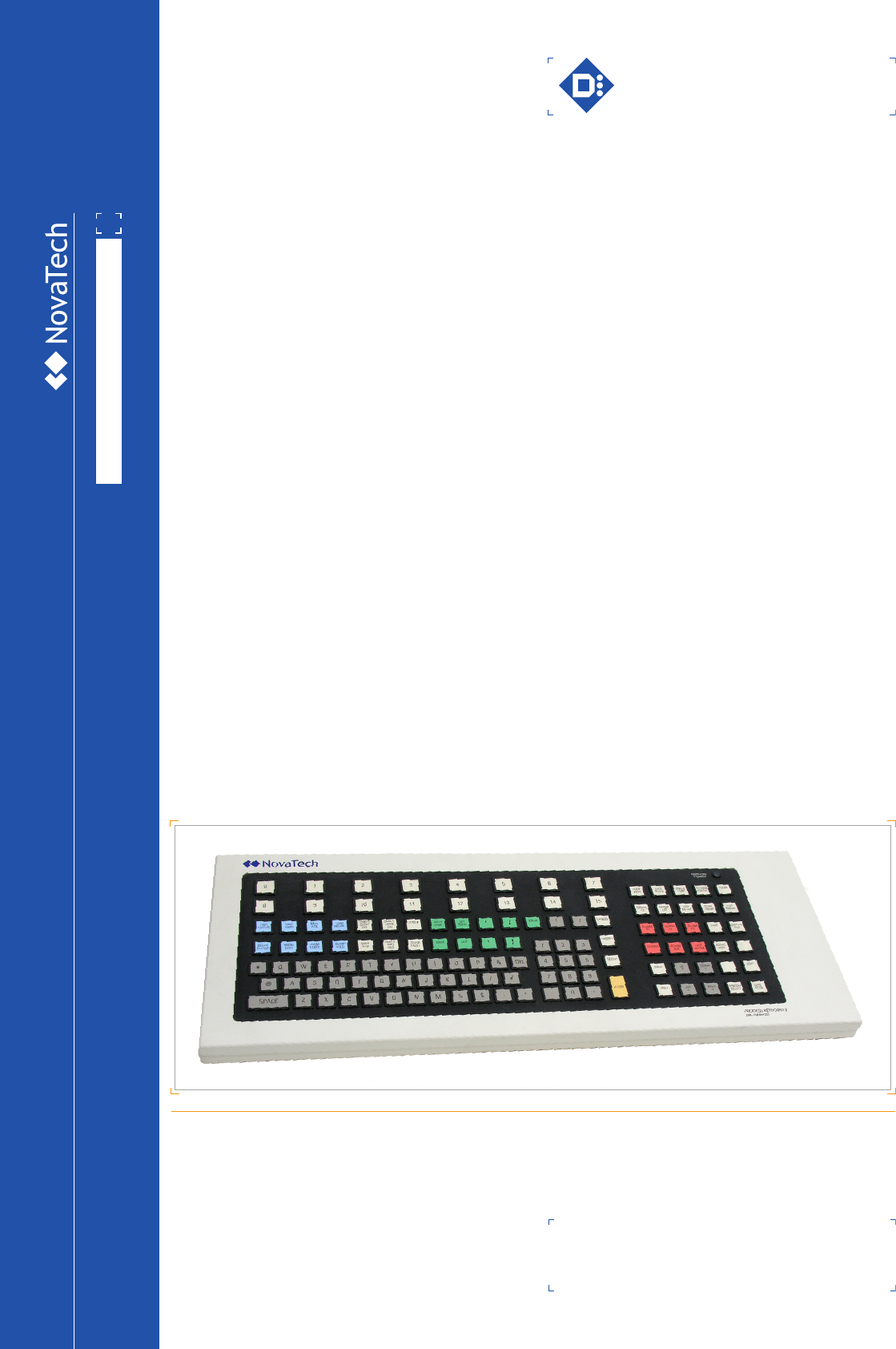
Contact:
®
NovaTech Europe BVBA
Kontichsesteenweg 71
2630 Aartselaar Belgium
T: +32 3 458.08.07
F: +32 3 458.18.17
www.novatechweb.com
The D/3® USB Keyboard is an environmentally
hardened operator’s keyboard with keys dedicat-
ed to process control functions. It communicates
at 12 mbps via an available USB 1.0/2.0 port on
an OCM, DCM or CDCM.
The D/3 Keyboard contains an audible alarm
horn with an adjustable volume control and an
alarm relay consisting of a single set of Form C
contacts.
D/3 control and display functions can be pro-
tected by limiting access to them. To access a
protected function, the user must have either
a master key to operate the key lock in the D/3
Keyboard or a password and a Console-Enabling
Index, CEI. The master key bypasses both the
passwords and CEIs to access all protected func-
tions.
The D/3 USB Keyboard functions in parallel with
a standard QWERTY keyboard. When connected
and configured either keyboard may be used.
Drivers and virtual communication port software
for Windows 2000, XP, Vista, and Server 2003 are
included on the D/3 Keyboard installation CD.
The D/3 Keyboard case is made of steel. The key-
pad is a one piece rubber overlay that is sealed
to the case making the top impervious to dirt or
liquid spills and easy to clean. The standard case
has openings in the rear near the connectors;
D/3 USB Keyboard
D/3 USB Keyboard
D/3
®
USB Keyboard
Process Control Functions
however, a wash down version of the keyboard is
available by special order.
Power for the keyboard functions is provided
from the USB connection. The universal 12 VDC
power supply (included) is only required when
the audible horn or Form C contacts are utilized.
Dedicated Keys
The D/3 USB Keyboard simplifies operator tasks
by providing dedicated keys, grouped into a logi-
cal arrangement for operators, for selection and
process control.
There are 16 quick-select keys which are used
to select faceplates and parameters from vari-
ous OCM displays. Six keys dedicated to alarms
are used to acknowledge alarms, silence audible
alarms, and review alarms. Ten display function
keys perform general operations for viewing and
editing of displays. Eight sequence logic keys are
used for interacting with units, recipes, and mes-
sages. Five continuous control keys allow direct
access for changing setpoints, outputs, and other
functions. Finally, four keys provide functions for
modifying parameters and four keys are used to
ramp values.
See Operator Console User’s Guide for additional
information about the D/3 Keyboard functions.




